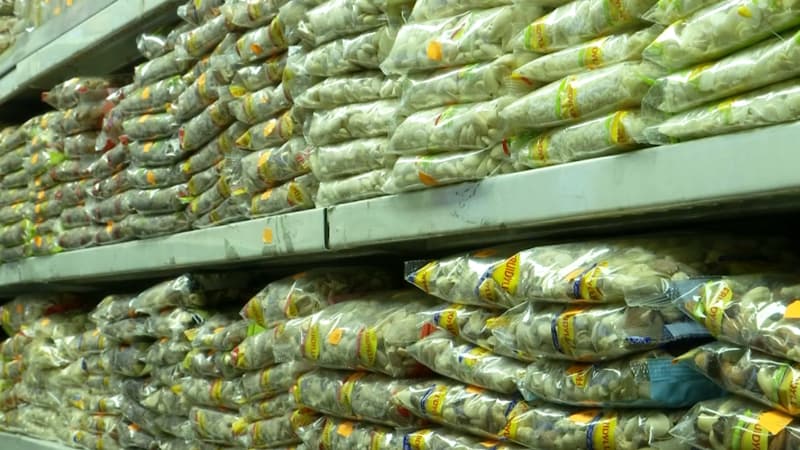“Now we do calculations before buying.” As Ramadan, the month of prayer and sharing for Muslims, begins Thursday, many Muslims fear they will have to forego themselves by breaking their fast as the most popular products of this religious holiday are inevitably affected by inflation.
An increase welcomed by customers, who are now paying more attention to their spending. “We no longer look at prices, not like before, we took things and took care of them,” said one of them.
“Forced to be satisfied with that”
Logically, merchants are catching up and adapting their offers to the current economic situation. An Ivorian merchant in Paris has set up a supply system for the most demanded products, bananas, meat broths, sugar or honey, without any real effect.
In Nice, Mourad Behnadou, a halal butcher, is also watching his customers’ behavior change. “Before, customers bought in large quantities and stored, now it’s different, they prefer to buy every day,” he observes, from BFMTV.
However, many practitioners prefer to put the philosophy of Ramadan before economic considerations.
“Ramadan, at night, it’s about shared meals, conviviality, so obviously we don’t skimp on the price, too bad”, “we don’t have a budget, but we bare ourselves”, “although it’s expensive, we have no choice , but meat will be more restricted than last year”, they say.
Inflation is expected to continue
Food inflation continues to explode and is a major drain on the French household budget. According to the INSEE for February, the rise in food prices in one year reached 14.5%. This figure is well above the average inflation for all sectors, estimated at 6.2%. And the trend should continue as by June, this figure should reach 15.4%.
Still according to INSEE, these increases inevitably lead to a change in consumption baskets and in eating habits with the risk of a deterioration in the quality of the food consumed.
Source: BFM TV


